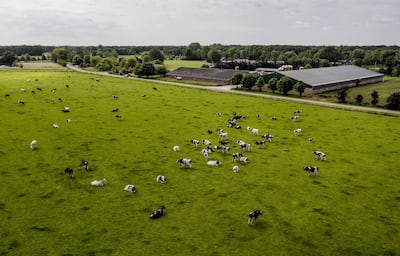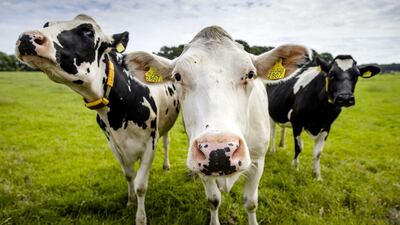Greenhouse gases on farms could be reduced by more than an eighth if there is a better genetic match between bulls and cows, new research suggests.
A study in Ireland of more than 4,000 cattle shows that improved genetics can have knock-on benefits for the environment, including the reduction of carbon dioxide emissions by 13 per cent.
Farmers have come under pressure to lower the industry's CO2 footprint as the world attempts to transition to a net zero economy in the coming decades.
In Ireland, the government has recently demanded cuts in emissions of up to 25 per cent by 2030, leading to disquiet among some farmers. However, the research offers hope that emissions targets in the sector are achievable.
The research, which was carried out by Anglo Beef Processors (ABP) over a six-year period, examined the weight and age of bulls through cattle-breeding indices on its database.
Cows with a greater genetic match eat less and grow faster, meaning they can be brought to slaughter more quickly and thus produce a lower carbon footprint.
“Improved genetics allows the animals to grow faster through better feed conversion and as a result they are ready for market at a younger age, reducing emissions significantly,” ABP said.

“The findings have the potential to play a significant role in helping Ireland’s agriculture sector reach the targets set out under the Climate Act and are applicable across different beef production systems.”
The data used by the study can also help farmers select more profitable beef calves, which fetch up to €200 ($204) more per carcass in the marketplace.
“It is important to note that there is no extra cost to farmers when they choose bulls with improved genetic traits,” ABP said.
Farmers across Europe have been told that more needs to be done to reduce the carbon footprint in the sector.
Agriculture accounts for about 10 per cent of UK carbon emissions and is key to the nation's net zero ambitions.


